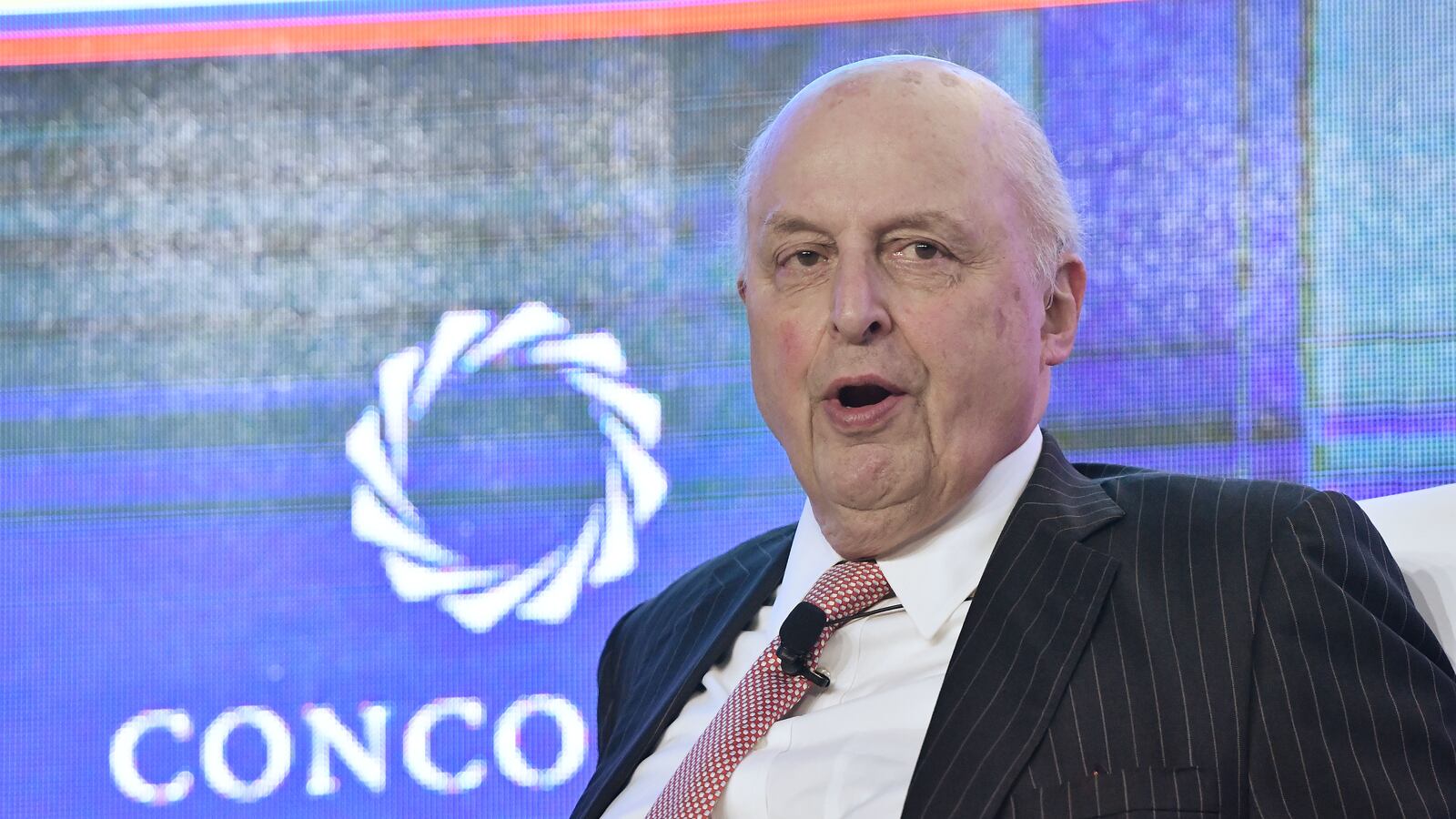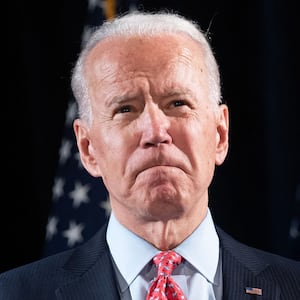Former Director of National Intelligence John Negroponte, a longtime and highly controversial Republican foreign policy figure, will endorse Democratic nominee Joe Biden on Thursday, he told The Daily Beast exclusively.
In an interview, the former top spy outlined his rationale for supporting Biden as a means of preventing President Donald Trump from securing a second term in the White House.
“All roads lead to Trump in a way,” Negroponte said. “I’m just not sure the country can withstand another four years of the presidency with a man who has shown such disregard to the office.”
The former U.S. ambassador to Iraq and the United Nations under President George W. Bush, Negroponte’s support of Biden comes as some of the most prominent names in the national security community, including those who served in Republican administrations, are publicly embracing the Democratic nominee’s campaign. During the second night of the Democratic National Convention, former Secretary of State Colin Powell offered his backing of Biden’s presidential run as well.
Biden’s team has campaigned openly and, at times, secretly on their ability to work with the opposing party, with some allies even casually saying that scoring a stamp of approval from Bush himself would be a boon to his bid. A Bush alumni group is now enthusiastically supporting his White House effort, while the former president has so far stayed out of the fray.
But Negroponte’s endorsement adds perhaps the most contentious name to the roster of foreign policy individuals looking to boost Biden from the outside. It also shows how the two disagreed at times in the past.
In 2005, Negroponte was the first director of national intelligence, overseeing the intelligence agencies at a time when the National Security Agency warrantlessly collected phone and internet data on millions of Americans. Asked if he regrets the NSA spying on Americans, Negroponte said no, instead arguing that he was “very comfortable” with his involvement years later.
“No, certainly not,” he said. “I am very comfortable with the role I played and the positions I took and the positions that I defended during that time. Don’t forget, that was then, and in those days, we were responding to an attack against the United States that resulted in the killing of 3,000 people and we had this whole issue of a global ‘War on Terror.’”
Republican and Democratic national-security figures often defended or downplayed post-9/11 domestic mass surveillance. And, earlier this year, senior House Democrats attempted to restore expired Patriot Act surveillance authorities. But the current Democratic Party platform has shunned the program, framing it as a violation of civil liberties.
“We will protect the privacy and civil liberties of the American people—standing firm against the type of warrantless surveillance of American citizens that flourished during the Bush Administration,” the DNC’s party position document states. “We support recent reforms to government bulk data collection programs so the government is not collecting and holding millions of files on innocent Americans.”
Negroponte’s stance also differs with Biden’s own past comments. In 2013, Business Insider surfaced previous remarks Biden made in 2006, where he said that certain aspects of domestic surveillance are “very, very intrusive.”
“I don't have to listen to your phone calls to know what you're doing,” Biden said in a television clip resurfaced by the outlet. “If I know every single phone call that you made, I am able to determine every single person you talked to. I can get a pattern about your life that is very, very intrusive.”
Years later, in a conversation with The Daily Beast, Negroponte seemed to tacitly acknowledge that perspective.
“I think over time, with discussion that took place in the ensuing years, you get a somewhat modified view of the situation and perhaps a little bit of a moderating of what might be considered desirable or acceptable under one set of circumstances or another,” he said.
Pressed on whether he believes mass surveillance should continue under a hypothetical Biden administration, Negroponte turned the attention to Capitol Hill. “We should all just observe whatever rules Congress might lay down for us,” he said, offering a qualifier: “But I wouldn’t drop it entirely.”
He also outlined a policy and judgment-based contrast with Biden over Iraq. In 2006, Biden, who chaired the Senate Foreign Relations Committee at the time, proposed partitioning the country into three regions, writing in an op-ed in The New York Times with Council on Foreign Relations president emeritus Leslie Gelb about its merits.
“The idea,” he wrote, “is to maintain a united Iraq by decentralizing it, giving each ethno-religious group—Kurd, Sunni Arab and Shiite Arab—room to run its own affairs, while leaving the central government in charge of common interests. We could drive this in place with irresistible sweeteners for the Sunnis to join in, a plan designed by the military for withdrawing and redeploying American forces, and a regional nonaggression pact.”
Negroponte disagreed with Biden’s position over a decade ago—and still sees a distinction with the former vice president over the issue today.
“I think it reflects his respect for and his acquaintance with a lot of Kurdish politicians and Kurdish people,” Negroponte said of Biden’s stance. “And it was a view that had some currency in those days. I did not agree with it.”
Elaborating on his stance, Negroponte explained that partition “would actually be a mistake and I think it would have exposed the Kurds in the north to the dangers from the various other borders.”
In addition to his tenure in Iraq and embrace of domestic surveillance, Negroponte’s most infamous and highly-criticized work came as ambassador to Honduras during the Reagan administration, where he aided the U.S.-backed “Dirty Wars” that undermined democratic Central American governments and terrorized civilians.
Those aspects of his resume aside, Negroponte maintained the rationale for supporting Biden—rather than standing by muted in the face of Trump—outweighs any potential quibbling over past debates.
“The real issue for Americans is whether Biden has the character, compassion, and life experience needed to represent the United States as president and the requisite respect for the office to which he aspires,” he said. “He beats Mr. Trump on these attributes hands down.”
In addition, Negroponte said, “just like Presidents Nixon and George H.W. Bush, he had [a] seat at the table during the entire eight years of the Obama administration. Nixon and Bush were arguably the two best prepared candidates for the presidency in modern times.”
Describing the newly-minted Democratic nominee as an “experienced politician,” “middle of the road kind of person,” and “a wise gentleman,” he didn’t equivocate when explaining his choice.
“We can use a little bit of that kind of wisdom that I think Joe Biden has accumulated over the years,” he said.
--Spencer Ackerman contributed to this report.






